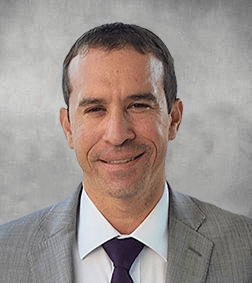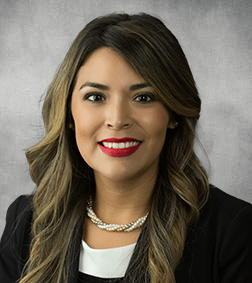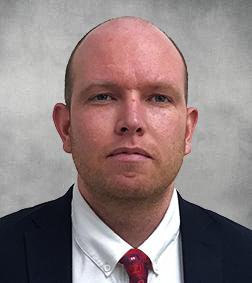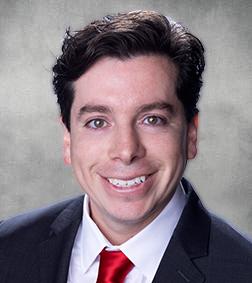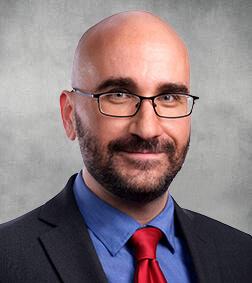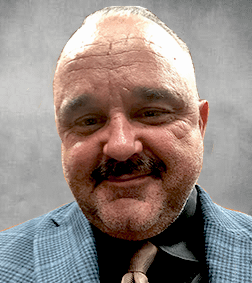Concealed Weapons Attorney in Florida
Defend Your Rights with Musca Law Criminal Defense Lawyers
A Florida criminal defense attorney at Musca Law can help you if you are facing criminal charges involving carrying a concealed firearm. This is a very serious offense that may be charged with a third-degree felony, punishable by up to 5 years in state prison and a fine of up to $5,000. There are certain circumstances, however, where an individual may carry a concealed firearm. A person who is licensed to carry a concealed firearm may carry one on his or her person. This offense also does not apply to particular devices meant for self-defense, such as pepper spray or a stun gun.
Concealed Firearms in Florida
According to Florida law, a “concealed firearm” is a firearm of any kind that a person has on his or her person in such a manner as it is concealed from the ordinary sight of another person. A concealed firearm may be located in any of the following areas:
- In a person’s pocket;
- In a belt holster hidden under a jacket;
- Wedged in a belt and hidden under the clothes; or
- In any other type of holster that is concealed from another person’s view.
A concealed firearm may also be one that a person is carrying in a purse or bag on their person.
Different Types of Legal Concealed Firearms in Florida
Under Florida Statutes Title XLVI, Chapter 790 §790.001,Subsection 1, the following weapons fall under the category of “concealed firearms,” as determined by Florida lawmakers:
- Handguns;
- Electronic weapons (or devices of any kind);
- Tear gas guns;
- Knives; and
- Billies.
Machine guns, interestingly enough, do not fall under the categories of the aforementioned weapons.
Eligibility for Concealed Firearm Licenses in Florida
Based on the Florida Statutes under Title XLVI, Chapter 790.06 §790.001(9), the Florida Department of Agriculture and Consumer Services shall only grant a conceal and carry license to individuals who are:
- U.S. citizens or permanent resident aliens in the country, as indicated by the U.S. Bureau of Citizenship and Immigration Services;
- At least 21 years of age;
- Does not suffer from a physical impairment or injury that would inhibit the proper and safe use of the firearm in question;
- Not eligible for being convicted of a felony, as indicated by s.790.23;
- Has not been charged with a crime related to controlled substances;
- Does not habitually use alcoholic beverages or legal drugs that could impair reflexes; and
- Seeking to use a firearm for the lawful purpose of self-defense.
Programs for Earning a Concealed Firearm License in Florida
To earn a concealed firearm license in the State of Florida, eligible citizens and resident aliens must also prove their capability to handle a firearm by the successful completion of any of the following programs, as indicated under Title XLVI, Chapter 790 §790.001(9) of the Florida Statutes:
- Hunter or hunter safety course that is officially approved and granted by the Fish and Wildlife Conservation Commission, or agencies of similar foundations across the country;
- Firearms safety/training course from the National Rifle Association;
- Firearms safety/training at a program taught by a firearms instructor certified by the National Rifle Association;
- Firearms safety/training course offered by local law enforcement agencies, colleges, firearms training schools, or public organizations sponsored by local law enforcement;
- Firearms safety/training program offered by a subdivision of a law enforcement agency;
- Recent experience with firearms by means of military service or organized shooting competitions; or
- Current licensure to carry a concealed firearm successfully issued by a county or municipality in the State of Florida.
Steps to Obtain a Concealed Firearm License in Florida
For first-time applicants, the Florida Department of Agriculture and Consumer Services (FDACS) offers a list of eligibility requirements for a concealed firearm license and an application packet for convenience. Overall, Title XLVI, Chapter 790.06 has listed the following steps for the issuing of a legal concealed firearm license in the State of Florida:
- Familiarize yourself with Florida Statutes XLVI, Chapters 790.06 and 790.25, to understand the full-scale list of requirements for earning a legal concealed firearm license in the State of Florida. Pay special attention to Chapter 290.06 §790.001(9);
- You must provide proof of citizenship and residency requirements as indicated by Florida Law and must be willing to submit information regarding past convictions, if applicable (see Chapter 790.06, Subsection E for more details regarding offense that may prevent the issue of a license);
- If you are a military veteran or a current member of law enforcement, be prepared to show your papers and/or licenses. FDACS is currently expediting licenses for individuals in these categories;
- Fill out an official concealed firearm license application. For your convenience, the FDACS has listed a free packet on the official website. You can either apply in person or by mail;
- Be prepared to submit a set of fingerprints or a photocopy of a receipt for a fingerprint scan to the Division of Licensing. The fee for fingerprint testing is $42;
- Provide a passport-style photograph; and
- Be prepared to pay $55 for the concealed firearm license itself (in total, the fee for the license costs $97, including the fingerprint cost).
The FDACS website also offers a portal to track the progress of your concealed firearm license.
Duration of the Concealed Firearm License in Florida
According to Chapter 790.001 (9), an official concealed firearm license issued by the Florida Department of Agriculture and Consumer Services will be valid for a time span of 7 years from the date it was issued to the applicant. Licensees must carry the license on their person while carrying the firearm and must be prepared to show the license and a valid photo ID to law enforcement.
Anyone who violates these instructions will be forced to pay a $25 fine, which will be payed to the clerk of court.
Which Florida Residents Carry Firearms without a License?
Florida Statute Title XLVI Chapter 790.25 (sub-section 3) dictates that the following people can lawfully own, possess, and use firearms in the state:
- Members of the Armed Forces of the National Guard and Florida State Defense Force or members of the Army, Navy, Air Force, Marines, or additional armed forces organizations of the United States of America;
- Individuals training for military duty or currently on duty, as dictated by Subsection 2, Article X of the Florida State Constitution;
- Individuals taking part in emergency management training (Chapter 252);
- Law enforcement and peace officers, as well as their assistants and deputies, of the State of Florida, which includes forest officials, revenue officers, game wardens, and Florida Highway Patrol officers;
- Officers and other individuals employed by the United States who are eligible to carry a concealed firearm as part of duties;
- Guards who work for carriers (express, armored car, and common), banks, and additional financial institutions in the State of Florida;
- Members of clubs that legally exchange weapons or businesses that manufacture weapons;
- Individuals who are using the firearms in a safe environment not governed by law or an indoor/outdoor shooting range;
- An individual carrying a wrapped weapon for cleaning or repairs;
- Individuals possessing firearms at their business location (under specific guidelines); and
- Private investigators employed by the State of Florida.
Carrying an Unlicensed Concealed Firearm in Florida
As indicated by the Florida Statutes, Title XLVI, Chapter 790.01, Subsection 2, a person who has not been issued a legal license under Chapter 790.06 and carries an illegal concealed firearm will be charged with a third-degree felony. Under the same chapter, individuals who take part in an evacuation due to a public emergency will not be charged with this offense if they have carried the weapon in the first 48 hours since the alert was issued.
Determination of a Valid Conceal-Carry Case
Based on the Florida Statutes, Chapter 790.01 and instructions listed for members of a Criminal Jury highlighted in Case 10.1, members of the court must prove, without any doubt, that:
- The defendant had been knowingly carrying a firearm on or around “their person”;
- The firearm in question had been “concealed from the ordinary sight” of other people; and
- The defendant had not been issued an official license to carry a concealed firearm.
Once again, under FS 870, Chapter 252, an individual who carried an unlicensed weapon within the window of 48 hours of a “mandatory evacuation” warning should be found “not-guilty.”
Understanding the Terminology of Case 10.01 for Unlicensed Concealed Weapons
Here is a closer look at the terminology set out for jurors in Case 10.01:
“On or about his/her person” refers to having a weapon in an accessible location on or around the body of the defendant.
“Ordinary sight of another person” refers to a witness observing that the defendant had been carrying the weapon.
“Deadly weapon” refers to a weapon that can inflict tremendous bodily harm to a victim.
“Firearm” refers to a weapon that expels a projectile (e.g. a bullet). Antique firearms do not fall into this category.
Final Determinations by a Florida Criminal Jury for Unlicensed Concealed Firearms
If the defendant cannot provide proof of carrying the firearm while being involved in an emergency evacuation as issued by the Florida Governor under FS 870, Chapter 252 of the State Law, the jury can find the offender guilty if there is no reasonable doubt towards the elements surrounding the charges, which is on the burden of the defendant or the State of Florida.
As dictated by § 790.01(3)(b) in the Florida Statutes, if defendants have met the burden of production by means of an affirmative offense, members of the state government will have the responsibility to disprove the defense by all reasonable doubt (for example, self-defense vs. willing participation in a burglary). As an example, see the case Dixon vs. the United States (548 U.S. 1) from 2006 for more information about these proceedings.
Grounds for Defense in an Unlicensed Concealed Weapons Case in Florida
A person has a viable defense against any convictions if they have been issued a license to carry a concealed weapon from FDACS and that license has not expired, as indicated under FS Chapter 790.06. Remember that the FDACS is an organization that has been granted authority by the state government to issue these licenses to men and women who meet all qualifications listed in FS Chapter 790.06.
Under the restrictions of FS Chapter 790.06 §790.001(9), individuals who are under 21 years of age or have previously been convicted of a felony do not meet the qualifications for a conceal-carry license in the State of Florida.
As indicated under Jury Case 10.01, individuals will have an opportunity to defend their case if they have been carrying a non-lethal weapon for self-defense purposes. These items may include:
- A chemical spray (like pepper spray);
- Non-lethal stun gun (including a dart-firing variety); and/or
- Additional non-lethal electric devices that are only designed for the purpose of self-defense.
Individuals who took part in an evacuation issued by the Florida Governor under FS 870 Section 252 will also have an opportunity to defend their case in court.
Penalties for Carrying an Unlicensed Concealed Firearm in Florida
According to Chapter 790.01, Subsection 2, carrying an unlicensed firearm in the State of Florida is a third-degree felony. As dictated by Chapter 775.083, individual charged with this offense will face a fine of $5,000.
Additional Resources for Cases Involving Unlicensed Concealed Weapons in Florida
Florida Statutes, Title XLVI, Chapter 790 – Read over the official guidelines for weapons and firearms.
Florida Standard Jury Instructions for Criminal Jury (10.1) – Review court rulings for cases involving unlicensed concealed weapons.
Representation from a Skilled Florida Concealed Weapons Lawyer
It is important that an experienced lawyer review your particular charges to determine how to best represent your interests through the life of your case. You do have rights, even when arrested and charged with a crime. These rights are in place to avoid the conviction and punishment of innocent people. It is your attorney’s job to uphold these rights and to utilize the law to work in your favor. Need help representing your rights? Call (888) 484-5057 for a confidential consultation with an experienced Musca Law attorney.








